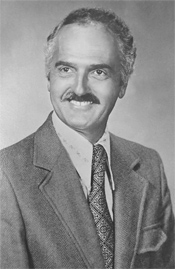Former Colby-Sawyer College President Recommends Ways to Strengthen Chinese Higher Education
 Chinese institutions of higher education will take a quantum leap forward when they embrace the principles of academic freedom, according to Dr. Louis C. Vaccaro, former president of Colby-Sawyer College. In a research paper titled “Strengthening the Relationship between Higher Education and Regional Economic Development in China,” Dr. Vaccaro and co-author Mi Zhou maintain that academic freedom should be China's highest priority in revitalizing their institutions of higher education, which they believe is closely linked to many countries' economic development.
Chinese institutions of higher education will take a quantum leap forward when they embrace the principles of academic freedom, according to Dr. Louis C. Vaccaro, former president of Colby-Sawyer College. In a research paper titled “Strengthening the Relationship between Higher Education and Regional Economic Development in China,” Dr. Vaccaro and co-author Mi Zhou maintain that academic freedom should be China's highest priority in revitalizing their institutions of higher education, which they believe is closely linked to many countries' economic development.
Since leaving his position as president of Colby-Sawyer College in 1977, Dr. Vaccaro has traveled to China each year to teach and serve as a consultant at one of China's leading universities. He teaches courses in organizational management and strategic planning at the University of Science and Technology of China in Hefei, where he also advises graduate students and members of the administration.
Dr. Vaccaro and one of his graduate students, Mi Zhou, a Ph.D. candidate, researched and wrote the paper, submitting it for consideration to the International Conference on Strategic Management (ICSM) at Sichuan University in Chengdu, China, which had solicited papers for its upcoming conference. The organizers of the ICSM accepted the paper but later requested that the authors excise all references to academic freedom, according to Dr. Vaccaro.
“Clearly, we didn't want the paper to appear as criticism, but it did cause quite a stir,” he said. Dr. Vaccaro sent the message back that he would present the paper as submitted—without omissions—which he did at the conference in April 2007.
“There were about 250 people in attendance and our paper was well received,” Dr. Vaccaro recalls, though the conference moderator allowed but one question from the audience afterward. “I'm hoping our paper will encourage a conversation on academic freedom in China. It may take five to eight years for the principles of academic freedom to be embraced, but when academic freedom is accepted and put into place, the quality of Chinese universities will take a quantum leap. Chinese scholars who've left the country in order to earn their Ph.D.s in the West will not return until they can enjoy the same academic freedom that they became accustomed to in the West.”
Conference attendees, upon learning of the intent to excise portions of the paper, recommended that the authors seek wider publication of the original paper. Since then, Dr. Vaccaro has sought to publish the work at his former institutions, including Colby-Sawyer College and the College of St. Rose, both of which have posted it on their Web sites.
Dr. Vaccaro was president of Colby-Sawyer College from 1972 to 1977, when he left to become president of Siena Heights College (now a university) in Adrian, Michigan. After six years at Siena Heights, he went on to assume the presidency of the College of St. Rose in Albany, N.Y., where he remained until his retirement in 1996.
He now lives in Las Vegas, Nev., and Old Forge, N.Y., and continues his frequent travel to and teaching in China. “I absolutely love the people in China, and the students are the best,” he says. “They are the most diligent and hard-working students I've ever known, and they are incredibly responsible and respectful of teachers. If you're a teacher in China, you're close to God!”
-Kimberly Slover


